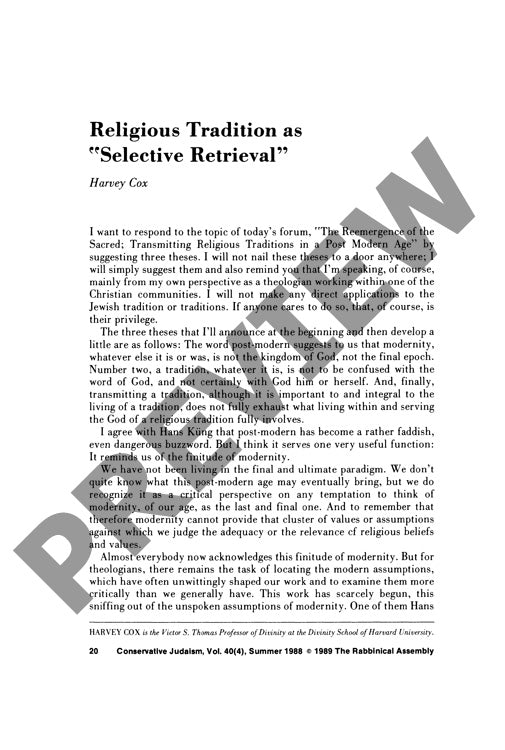Religious Tradition as Selective Retriev
Couldn't load pickup availability
Religious traditions face a critical dilemma in post-modern society: how can faith communities determine which elements of their heritage to preserve and which to relinquish? Drawing from Christian theological perspectives, three interconnected theses illuminate this challenge. Post-modernity's emergence reveals modernity's limitations, undermining the notion that secular modern values should serve as the ultimate arbiter of religious belief. Moreover, religious tradition must be distinguished from divine revelation itself, as not all traditional elements merit preservation. Through comparative theological analysis and historical critique of modern theological assumptions—particularly those stemming from Schleiermacher's work—the concept of "selective retrieval," borrowed from Catholic theologian Karl Rahner, emerges as a framework for evaluating traditional elements. Communities of faith must critically examine their inherited traditions, preserving components that foster divine shalom while discarding those that perpetuate injustice. The principle for such selection emerges organically from within traditions themselves, as exemplified by prophetic prioritization of justice over ritual observance, suggesting that authentic religious transmission serves transformative rather than merely preservative functions.

More Information
-
Physical Description
-
Publication Information
Published 1988
ISBN
-
Publication Credits
Harvey Cox

